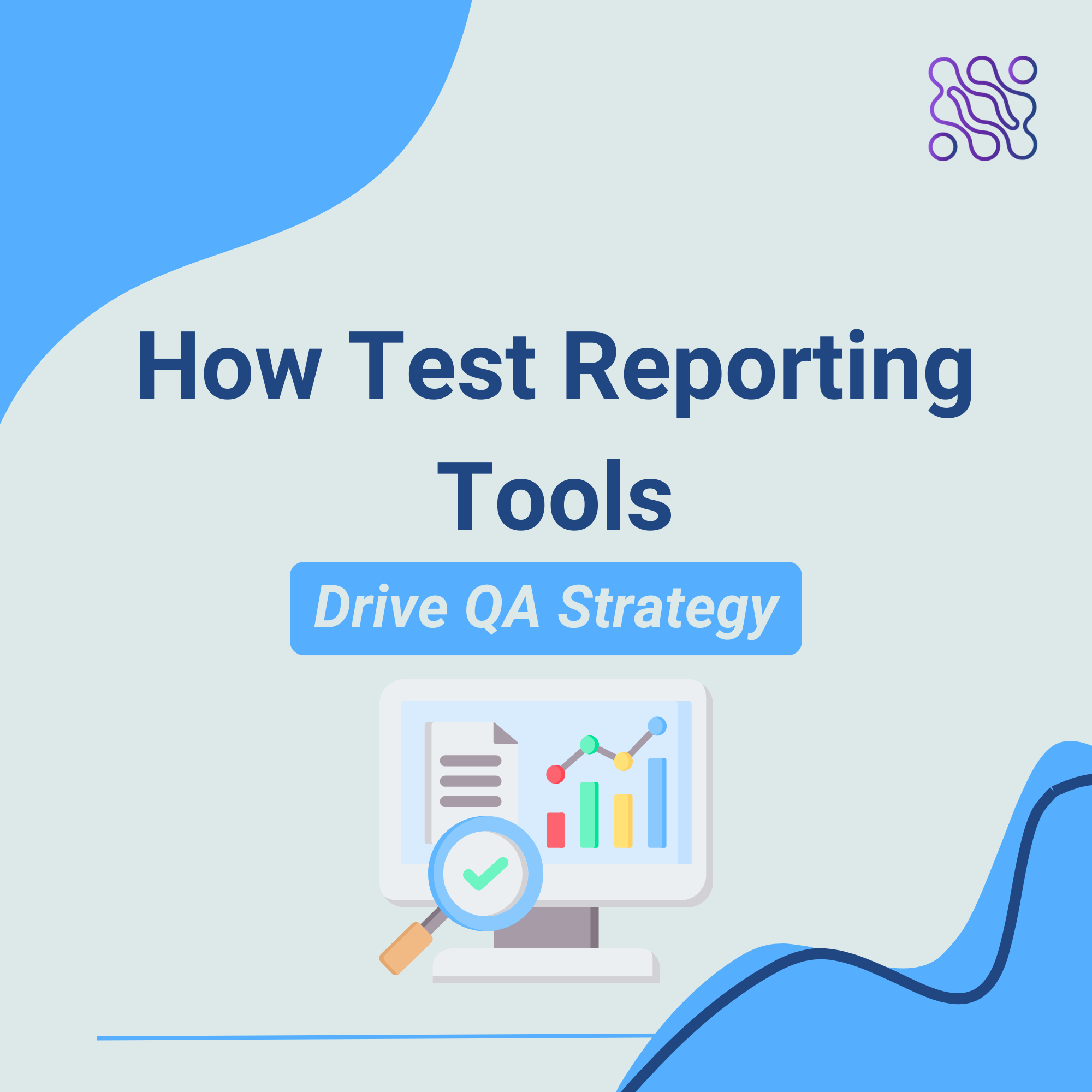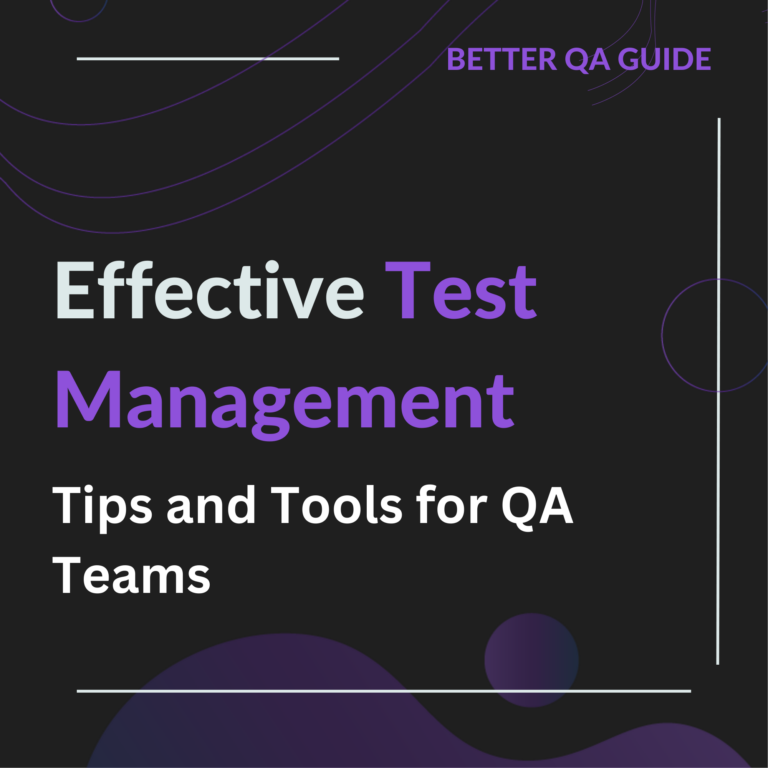Test Reporting That Actually Changes How You Test
Most test reports get skimmed and ignored. They show pass/fail counts without answering the question that matters: where should we focus next? Good test reporting tools transform raw execution data into decisions about what to test, when to release, and where risk hides.
5 Signs Your Test Reports Are Not Working
Pass/Fail Only
Reports show 847 passed, 12 failed - but nobody knows which 12 matter. A failed tooltip animation and a failed payment flow get equal weight.
No Trend Data
Each report is a snapshot. Nobody tracks whether the same module fails every sprint or whether test coverage is increasing or shrinking.
Wrong Audience
Developers need stack traces and reproduction steps. Managers need risk summaries. When both get the same report, neither finds what they need.
Manual Assembly
A QA lead spends 2 hours before every status meeting copying results from 3 tools into a spreadsheet. The data is stale before the meeting starts.
No Action Items
The report is filed and forgotten. It documents what happened but never answers the question: what should we do differently next sprint?
4 Reports Every QA Team Needs
Each report answers a different question. Together they give a complete picture of quality status.
| Report | Question It Answers | Audience | Key Metrics |
|---|---|---|---|
| Test Execution Summary | How much did we test? | QA lead, PM | Tests run, pass rate, blocked tests, execution time, tests remaining |
| Defect Analysis | Where are the problems? | Dev lead, QA lead | Defects by module, severity distribution, reopen rate, fix time, defect density |
| Coverage Report | What did we miss? | QA team, architects | Requirements mapped to tests, untested features, code coverage %, risk areas |
| Release Readiness | Can we ship? | PM, stakeholders | Open critical/high defects, regression pass rate, exit criteria status, risk summary |
5 Metrics That Predict Release Readiness
Track these across sprints. Individually they tell you about testing activity. Together they tell you whether the release is safe.
Defect Discovery Rate
New defects found per day or per sprint. A dropping rate late in the cycle signals the product is stabilizing. A spike after code freeze signals instability.
Defect Fix Rate
Defects fixed vs. defects found within the same period. When the fix rate consistently stays below the discovery rate, the backlog grows and release dates slip.
Test Case Effectiveness
Percentage of defects caught by test cases vs. found ad hoc or in production. Low effectiveness means your test suite has gaps - you are testing the wrong things.
Regression Pass Rate
Percentage of regression tests passing after each build. Dropping below 95% means new changes are breaking existing functionality faster than the team can stabilize.
Escaped Defects
Defects found in production that QA should have caught. Each escaped defect is a signal to add a test case and investigate why it was missed - environment gap, missing test data, or untested path.
Same Data, Three Different Views
The data is identical. The presentation changes. Each audience needs a different level of detail and different action items.
Technical Detail Report
- Failed test name, stack trace, and screenshot
- Steps to reproduce with exact environment
- Related code commits since last passing run
- Which API endpoint or module failed
- Flaky test history (is this a real failure or noise?)
Coverage and Progress Report
- Test execution progress (run vs. remaining)
- Blocked tests and blockers
- Coverage gaps by feature area
- Defect trends vs. previous sprint
- Team velocity (tests executed per day)
Risk and Status Report
- Go/no-go recommendation with reasoning
- High-risk areas with business impact
- Open critical defects count and trend
- Schedule impact (are we on track?)
- Quality comparison vs. previous release
Choosing the Right Reporting Tool
The right tool depends on your team size, tech stack, and who reads the reports. Here is how the main options compare.
| Tool | Best For | Output Format | CI/CD Integration | Stakeholder Friendly |
|---|---|---|---|---|
| Allure | Multi-framework projects | Interactive HTML dashboard | Strong | High |
| Mochawesome | JavaScript/Mocha projects | Static HTML + JSON | Strong | Medium |
| Cucumber HTML | BDD teams, non-technical stakeholders | HTML with Gherkin scenarios | Strong | High |
| ExtentReports | Java/Selenium projects | HTML with charts and timelines | Medium | High |
| ReportPortal | Large teams needing centralized reporting | Web dashboard with AI analysis | Strong | High |
| TestRail | Test management + reporting combined | Built-in dashboards + exports | Medium | High |
| BugBoard | Screenshot-to-bug-report workflow | Integrated test case management | Strong | High |
6 Steps to Build a Reporting Strategy
A reporting strategy is not about picking a tool. It is about deciding what decisions the reports need to support, then working backward.
Define Exit Criteria First
Before writing a single test, agree on what "done" looks like. Example: zero critical defects, 95% regression pass rate, all P1 features tested.
Map Metrics to Decisions
Every metric should trigger a specific action. If defect discovery rate spikes, add resources. If regression pass rate drops, halt new features.
Automate Collection
Reports that require manual data entry are reports that get skipped. Integrate reporting into your CI/CD pipeline so every build produces a report automatically.
Separate Views by Role
Create report templates for each audience. Developers get technical details. QA leads get coverage and velocity. Stakeholders get risk summaries and go/no-go recommendations.
Track Trends, Not Snapshots
A single report says little. Three months of reports reveal patterns. Store historical data and compare across sprints to spot regressions early.
Review and Adapt Quarterly
Every quarter, ask: are these reports changing behavior? If a metric is never acted on, remove it. If a decision keeps getting made without data, add a metric for it.
How BetterQA Handles Test Reporting
Our 50+ engineers deliver standardized reporting across every engagement. Here is what clients receive.
BugBoard Integration
Every defect captured with screenshot, console logs, and environment data. Automatically linked to test cases. No manual copy-paste between tools.
Weekly Status Reports
Standardized template covering test progress, defect trends, risk areas, and recommendations. Same format every week so trends are immediately visible.
BetterFlow Time Tracking
Every hour logged and correlated with GitHub commits and Jira tickets. Clients see exactly how time is spent - 8 hours billed means 8 hours of work.
ISO 9001 Reporting
Our ISO 9001:2015 certification means reporting follows documented procedures. Consistent format, consistent metrics, consistent quality across all projects.
Frequently Asked Questions
What is the most important metric in test reporting?
There is no single most important metric. The escaped defect rate is the best indicator of QA effectiveness because it measures what actually reaches users. But it needs context from regression pass rate and defect discovery trends to be actionable.
How often should test reports be generated?
Automated execution reports should be generated with every CI/CD build. Summary reports for stakeholders should be weekly during active development and daily during release candidate testing. Trend analysis should be done at the end of each sprint.
Do I need a dedicated test management tool for reporting?
Not necessarily. Small teams can get by with CI/CD-integrated reporters like Allure or Mochawesome plus a spreadsheet for trend tracking. As your team grows past 5-10 testers, the overhead of manual tracking usually justifies a dedicated tool like TestRail, ReportPortal, or BugBoard.
How do you handle flaky tests in reports?
Flaky tests erode trust in reports. Track flakiness rate as a separate metric. Tests that fail intermittently more than 10% of the time should be quarantined, investigated, and fixed before they pollute your pass rate data.
What is a good regression pass rate threshold?
Most teams use 95% as the minimum threshold for release. Below 95%, new features are breaking existing functionality at an unsustainable rate. The target should be 98%+ for critical systems like healthcare, finance, or government applications.
How do test reports support QA outsourcing decisions?
Reports provide objective evidence of QA partner performance. Track defect escape rate, test case effectiveness, and coverage completeness across sprints. These metrics make vendor evaluations data-driven rather than opinion-based. At BetterQA, we provide transparent reporting through BetterFlow so clients always have visibility into work quality.
Need Better QA Reporting?
Our 50+ engineers deliver standardized test reporting with every engagement. ISO 9001 certified processes, BugBoard integration, and transparent time tracking included.
BOOK A CONSULTATION


